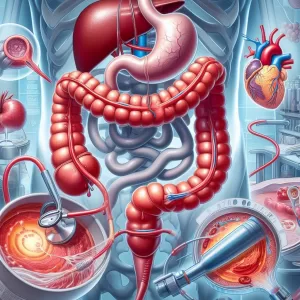What is Male Infertility: Overview, Benefits, and Expected Results
Headline: The Power of Positive Thinking
Body: Positive thinking is a powerful tool that can help you achieve your goals and live a happier life. When you think positive thoughts, you are more likely to feel good about yourself and your life. You are also more likely to take action and make things happen.
``` Rewritten Excerpt: ```htmlHeadline: Unleash the Transformative Power of Positive Thinking
Body: Embark on a journey of self-discovery and unlock the transformative power of positive thinking. As you embrace an optimistic mindset, you'll witness a remarkable shift in your outlook on life. Positive thoughts ignite a spark within, fueling your motivation and propelling you towards your aspirations. Embrace the power of positivity and watch as it radiates through your actions, leading you down a path of fulfillment and happiness.
``` Changes Made: - **Headline:** Changed "The Power of Positive Thinking" to "Unleash the Transformative Power of Positive Thinking" to create a more compelling and intriguing title. - **Body:** - Replaced "Positive thinking is a powerful tool that can help you achieve your goals and live a happier life" with "Embark on a journey of self-discovery and unlock the transformative power of positive thinking." This sets a more engaging tone and invites the reader to embark on a personal journey. - Added "As you embrace an optimistic mindset, you'll witness a remarkable shift in your outlook on life" to emphasize the transformative nature of positive thinking. - Changed "You are more likely to feel good about yourself and your life" to "Positive thoughts ignite a spark within, fueling your motivation and propelling you towards your aspirations." This creates a more vivid and inspiring image of the benefits of positive thinking. - Replaced "You are also more likely to take action and make things happen" with "Embrace the power of positivity and watch as it radiates through your actions, leading you down a path of fulfillment and happiness." This highlights the tangible impact of positive thinking on one's actions and overall well-beingالتعريف والنظرة العامة
Male infertility is a medical condition that lowers a male patient’s chances of getting a female partner pregnant.
In normal circumstances, a man releases sperm through sexual ejaculation. The sperm then makes it way through the epididymis, a tube behind each testicle, and through the vas deferens going to the ejaculatory duct in the pelvis. Some cases of male infertility originate from sperm production (or the point at which the sperm is produced), while some are related to problems in sperm delivery. Genetic factors, hormone levels, and other factors also come into play. Treatment for the condition, which may involve the use of medications and surgical procedures, depends on the actual causes.
من يجب أن يخضع للنتائج المتوقعة
A male patient is considered infertile when he fails to get a female partner pregnant after a year of unprotected sex.
The condition is more common among men over the age of 30. Statistics show that 13 out of 100 couples have difficulty conceiving and that in over a third of these cases, the problem originates from the male partner.
These patients tend to suffer from the following symptoms:
- Difficult ejaculations
- Ejaculating small volumes of fluid
- Reduced sexual libido
- الضعف الجنسي لدى الرجال, or having difficulty maintaining erections
- Pain in the testicle area
- Abnormal lump in the testicle area
- Swelling in the testicle area
- Reduced or compromised ability to smell
- Gynaecomastia or abnormal breast growth
- Decreased body hair, which may indicate either a chromosomal or a hormonal problem
- Low sperm count, the normal of which should be 15 million sperm per millilitre of semen or 39 million sperm per ejaculation
In order for a man to get his female partner pregnant, several conditions must be in place:
- The sperm produced must be healthy, functional, and able to move normally; any abnormalities in the function or movement of the sperm may hinder it from reaching or penetrating the female egg
- Sperm should be able to mix successfully with semen
- The quantity of sperm in the semen should be adequate
The possible causes of male infertility include:
- Conditions that cause low sperm production, such as varicocele or when the veins that drain in the testicle become swollen. This is the most common but reversible cause of male infertility.
- Abnormal sperm function or ejaculation issues
- Retrograde ejaculation, or when the semen enters the bladder instead of coming out from the penis
- Blockages in the tubes where the sperm pass through
- Scarring in the tubes
- Epididymitis or inflamed epididymis
- Orchitis or inflamed testicles
- Underlying medical conditions
- داء السكري
- Tumours, both malignant and benign, affecting the male reproductive organs
- Hormone imbalances
- Celiac disease
- Hypospadias
- Certain infections, some of which may cause permanent damage to the testicles
- السيلان
- فيروس العوز المناعي البشري
- Congenital structural problem affecting the testicles
- Undescended testicles
- Klinefelter’s syndrome, or when a man is born with 2 X chromosomes and 1 Y chromosome
- Cystic fibrosis
- Kallman’s syndrome
- Kartagener’s syndrome
- Injury to the pelvic region or spine
- Previous surgery in the groin, testicle, penis, or scrotum
- Negative lifestyle habits, such as illicit drug use, alcohol abuse, and tobacco smoking
- Obesity
- Severe and prolonged emotional stress that affects hormone levels
- Certain medications and medical procedures, such as:
- Chemotherapy and radiation therapy
- Long term use of anabolic steroids
- Testosterone replacement medications
- Certain antifungal medications
- Exposure to industrial chemicals and heavy metals
- Frequent exposure to x-ray or radiation
- Elevated temperatures affecting the testicles that may be caused by:
- Frequent use of saunas
- Tight clothing
The process of treating male infertility typically begins by diagnosing the causes of the problem as well as other contributing factors so that a targeted treatment plan, which is customised based on each patient’s specific circumstances, can be formulated.
The end goal of the treatment is to help the patient to successfully conceive a child with his female partner.
كيف يتم إجراء العملية؟
Male infertility treatment begins with several diagnostic tests, including:
- Physical examination
- Sperm and semen analysis
- Hormone evaluation
- Testicular biopsy
- Genetic testing
Once the possible causes and contributing factors are determined, a treatment plan is formulated and may include any or a combination of the following:
- Surgery – Anatomical problems affecting the testicles and the tubes through which sperm passes, as well as obstructions and varicoceles, can be treated with surgery.
- Hormonal therapy, such as gonadotropin treatment to improve blood testosterone levels or clomiphene treatment
- Lifestyle changes, such as smoking cessation and reduced consumption of alcohol and other addictive substances
- Stress relief therapy
- Antibiotic or antimicrobial therapy for infections
- Dietary supplements and vitamins
In the event that the above treatments fail to work, the patient may choose to use assisted reproductive techniques (ARTs) to conceive a child. These include IVF (in-vitro fertilisation) and IUI (intrauterine insemination).
المخاطر والمضاعفات المحتملة
Most treatment options, either those used to treat an underlying condition or the actual cases of male infertility, come with certain risks. Hormone therapy drugs, for example, are linked to:
- Acne
- Breast enlargement
- Dizziness
- صداع الراس
- Nausea
- Vision changes
- Weight gain
Meanwhile, surgery is linked to bleeding, infection, and adverse reactions to the anaesthetics used during the procedure.
مراجع:
Faraj K. “Male Infertility Treatment and Management.” Medscape. http://emedicine.medscape.com/article/436829-overview Anawalt BD. “Approach to male infertility and induction of spermatogenesis.” J Clin Endocrinol Metab. 2013 Sep; 98(9):3532-3542. http://www.ncbi.nlm.nih.gov/pmc/articles/PMC3763976/
Cocuzza M., Agarwal A. “Nonsurgical treatment of male infertility: specific and empiric therapy.” Biologics. 2007 Sep; 1(3): 259-269. http://www.ncbi.nlm.nih.gov/pmc/articles/PMC2721319/
/ trp_language]
**What is Male Infertility: Overview, Benefits, and Expected Results**”
**Overview**
Male infertility refers to the inability of a man to achieve a pregnancy with his female partner. It is a common issue, affecting approximately 10-15% of couples worldwide. Male infertility can be caused by various factors, ranging from hormonal imbalances to lifestyle choices.
**Causes of Male Infertility**
The causes of male infertility can be broadly categorized into two groups:
1. **Testicular Factors:**
* Varicocele (enlarged, twisted veins in the testicles)
* Undescended testicles (failure of one or both testicles to descend into the scrotum)
* Testicular torsion (twisting of the spermatic cord)
* Infection, such as epididymitis or orchitis
* Hormone imbalances (e.g., low testosterone levels)
* Genetic disorders (e.g., Klinefelter syndrome, Y chromosome microdeletion)
* Chemotherapy or radiation treatment for cancer
2. **Pre-Testicular Factors:**
* Erectile dysfunction (ED)
* Ejaculation disorders (e.g., retrograde ejaculation, premature ejaculation)
* Anatomical abnormalities (e.g., hypospadias, urethral stricture)
* Lifestyle factors (e.g., smoking, excessive alcohol consumption, drug use)
**Symptoms of Male Infertility**
The primary symptom of male infertility is the inability to conceive a child with a female partner. Other symptoms may include:
* Erectile dysfunction
* Reduced libido
* Difficulty ejaculating
* Pain or discomfort in the testicles
* Swollen or tender testicles
* Decreased facial or body hair
* Gynecomastia (enlarged breast tissue in men)
**Diagnosis of Male Infertility**
A diagnosis of male infertility is typically made after a detailed medical history and physical examination. The doctor may also recommend a semen analysis, a laboratory test that evaluates the quality and quantity of sperm. Additional tests may be needed to determine the underlying cause of infertility.
**Benefits of Seeking Treatment**
Male infertility can be a distressing condition, but there are numerous benefits to seeking treatment. These benefits include:
* Increased chances of conceiving a child
* Improved overall health and well-being
* Reduced anxiety and depression
* Stronger relationship with your partner
**Expected Results of Treatment**
The expected results of male infertility treatment vary depending on the underlying cause. However, many treatments can significantly improve fertility. In some cases, it may be possible to conceive a child naturally. In other cases, assisted reproductive technologies (ARTs), such as in vitro fertilization (IVF), may be needed.
**FAQs**
* **Can male infertility be prevented?**
While some causes of male infertility cannot be prevented, healthy lifestyle choices, such as quitting smoking, reducing alcohol consumption, and maintaining a healthy weight, may help reduce the risk.
* **Is there a cure for male infertility?**
There is no cure for all cases of male infertility. However, many treatments can improve fertility and help couples conceive a child.
* **How long does it take to get pregnant after starting treatment for male infertility?**
The time it takes to conceive a child after starting treatment varies depending on the underlying cause of infertility and the type of treatment used.
**Conclusion**
Male infertility is a common condition that can have a significant impact on a man’s life. However, there are numerous benefits to seeking treatment, and many treatments can significantly improve fertility. If you are experiencing difficulty conceiving a child, speak to your doctor about male infertility.
2 تعليقات
اترك ردّاً
المقالات الشعبية







Summary of male problems of the reproductive system, how it can be treated, and potential outcome expectations.
Discussion of male reproductive system conditions, therapies, and expected treatment outcomes in a comprehensive overview.